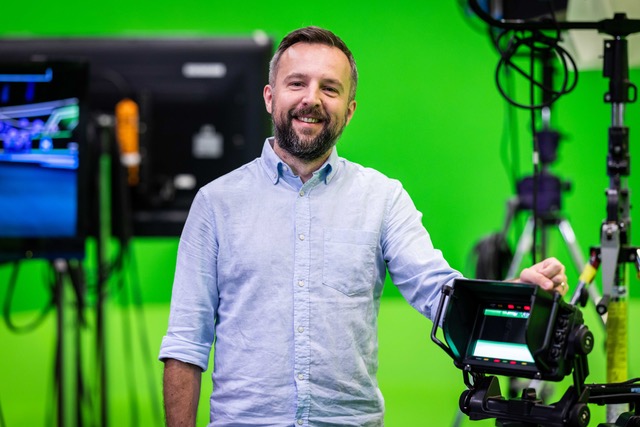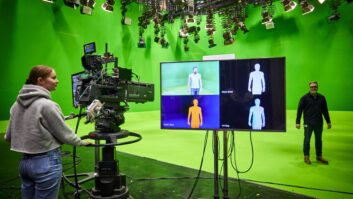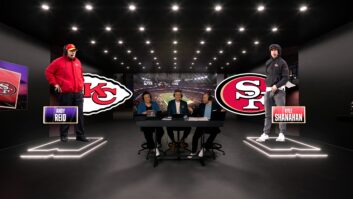Andy Elliott, lead virtual studio developer at dock10
What has been your greatest professional challenge?
Making the switch from games to broadcast was without a doubt my greatest challenge. I’d reached a point in my career where I needed a change but my skills were specific to game development. There were a few options for someone with my knowledge of design and game engines, mainly around arch-vis or interactive entertainment, but there weren’t many vacancies. It was through an industry contact that I ended up making the move to dock10 and starting a whole new career.
How would you compare working in virtual production with working in games?
Most of the projects I worked on in the games industry were multi-platform AAA titles with large teams and years of development. The shortest ran for about eight months with a team of 60. Since moving to the broadcast industry, the most extended project I’ve worked on ran for six months with a team of around 15. Virtual production is an industry in its infancy, so by necessity, we run smaller, more agile teams to deliver projects.
What do you love most about working on a virtual set?
The key to loving what you do is to enjoy the process. In my role, I’m involved in every stage, from initial conversations with a client to deployment, and I enjoy it all. But I’ll admit that seeing your work in a gallery as the production team makes their show is particularly special.

What do you wish more people knew about virtual production?
A lot of clients come to us with preconceived ideas of virtual production, sometimes that’s helpful, and sometimes it’s not. I think a lot of it comes from social media. Someone might see a short behind-the-scenes clip of The Mandalorian and assume the technology will work for their show, which might not be the case. For example, a lot of clients ask about LED volumes, which work great for single-camera drama but not for multi-camera shoots – not yet anyway. This is where collaboration is key, we’re happy to advise the pros and cons of any approach, but it helps to be involved in these conversations as early as possible.
What is the future of virtual production as an industry?
Four years ago, Unreal Engine-based virtual production was a little-known technology used mainly for the news and weather. My first project involved helping to deliver BBC Sport’s virtual solution. Since then dock10 has delivered all kinds of shows, from children’s education and e-sports to factual and light entertainment. During this time I’ve seen a real shift in the attitude of clients and commissioners. Along with more and more shows embracing virtual, I think emerging tech like volumetric capture and AI will become important.
What piece of advice would you offer someone looking to explore a role similar to yours?
Knowledge of game engines is key. Most solutions use Unreal Engine or are based on it like Reality by Zero Density, the product we use at dock10. Some will use Unity or a bespoke engine though, so understanding how game engines work is important. Luckily there’s a lot of free training you can do to get started, from both the Unreal Engine website and Zero Density Academy.
The development side of my role involves delivering whatever a client needs, sometimes this means a traditional environment build (like a game level with less interactivity), but we’ve also delivered motion capture, real-time AR graphics, and lighting via DMX. If it’s possible in Unreal Engine we figure out how to do it.
There are a few compatible roles in the games industry such as environment artist, technical designer, and software engineer, so I’d advise anyone in these kinds of roles wanting a change to research virtual production, keep an eye on sites like LinkedIn, and speak to recruiters. After all, it looks like virtual production is only going to grow.







